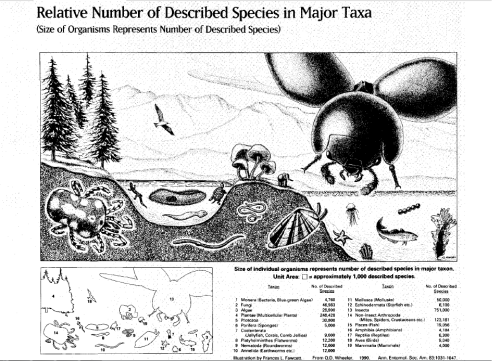Taking Comfort in the Downfall
 Thursday, January 7, 2016 at 05:31AM
Thursday, January 7, 2016 at 05:31AM The way men mistreat the natural world is as if as though there is another planet Earth waiting in the wings, ready to be populated and put to use. The way men mistreat each other is if they shall be absolved of their sins before death, and miraculously their souls shall be redeemed. The way men squander their lives and health is as if as though they believe they will be reincarnated after death, and will have a chance to do it all over again.
-Walter Lloyd Waterson, Essay on the Nature of Men, 1828
The Korean peninsula shuddered this week as the Orwellian technocrats of North Korea arguably detonated a hydrogen bomb in an underground test site. This comes at a time when much of world is drowning in political and environmental turmoil. Syria, Iraq, Afghanistan, Ukraine, Saudi Arabia, Yemen, Israel, Palestine are but a few areas of conflict which threaten to mushroom into conflagrations involving multiple nuclear powers. Each passing day of brinksmanship and bloodshed serves to intensify the strife and vengeance between warring parties, thus making the process of healing more difficult and the possibility of reconciliation farther from reach. Each missile lobbed, bomb dropped, and bullet fired takes humanity closer the moment when it loses this game of Russian roulette, for these metastasizing conflicts will inevitably implode in a worldwide nuclear slugfest in which huge sectors of civilization are extirpated and entire ecosystems are poisoned to death.

Trinity nuclear bomb test, the first nuclear bomb ever detonated, July 16, 1945.
Endowed with intelligence, human beings have constructed weapons powerful enough to destroy the planet. Endowed with arrogance, we have proven that we will use these weapons against one another, even if it spells self-destruction and the death of Earth. All this quarreling over petty, superficial differences (politics, religion, culture) shall one day lead to the fall of our biologically-identical species. We’ve had a good ride, though. Over 100 billion people have ever lived on Earth, and our ancestors have sacrificed and fought to preserve and sustain human life, but at some point, somehow, the torch must drop. I take some comfort in knowing that no one really wants to destroy themselves and myraid other Earthlings, but we have inadvertently created monstrous systems which have grown larger than we could have ever imagined and are now out of our control. We have let loose economic and political Frankensteins that thrive off the destruction of the planet, autonomous war machines which feed off vegetation and human flesh. These systems perpetuate slums and sweatshops, the mowing down of rainforests and coral reefs, the damming of rivers, the bombing of ancient cities, the divisions between countries, cultures, and religions, and pit men of power (yet of primitive mindsets) against one another so that they threaten each other with nuclear war, thus dragging all of humanity down an insane and violent path that we neither consented to nor desire to travel. Thus, when these systems carry us off the brink of annihilation in a nuclear day of reckoning, in our collective downfall we shall reach for each other through the flames and weep in the crucible. We shall know that no one really wanted our existence to end like this, but we had lost control, and we are sorry for not having done more to dismantle these systems save the world when we had the chance.
Scientists were startled in 1980 by the discovery of a tremendous diversity of insects in tropical forests. In one study of just 19 trees in Panama, fully 80 percent of the 1,200 beetle species discovered were previously unknown to science. At least 6 million to 9 million species of arthropods—and possibly more than 30 million – are now thought to dwell in the tropics with only a small fraction currently described. As scientists begin investigating other little-known ecosystems, like the soil and the deep sea, "surprising" discoveries of species become commonplace. Small wonder. A single square meter of temperate forest can hold 200,000 mites and tens of thousands of other invertebrates. A similar-sized plot from tropical grasslands can hold 32 million nematodes, and one gram of the same soil might hold 90 million bacteria and other microbes. How many species these communities contain is still anyone's guess. Marine systems too are revealing an unsuspected diversity. Scientists believe that the deep sea floor may contain as many as a million undescribed species. Entirely new communities of organisms – hydrothermal vent communities—were found less than two decades ago. More than 20 new families or subfamilies, 50 new genera, and 100 new species from these vents have been identified.
-Global Biodiversity Strategy, World Resources Institute, 1992

 Aaron |
Aaron |  Post a Comment |
Post a Comment | 
Reader Comments